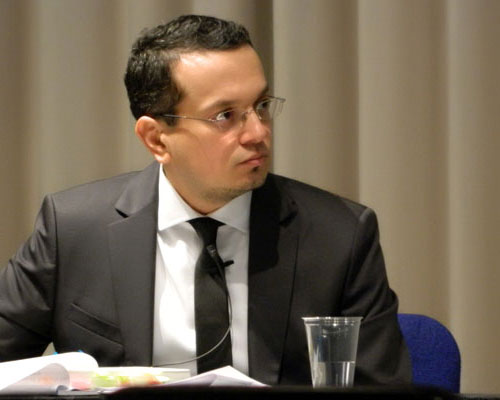any reason, please do not hesitate
to send an e-mail. I would be happy
to hear from you.
Send a message
I am an industrial designer and researcher. My research focuses on creative design and crafts heritage management strategies that trigger social transformation towards sustainable consumer culture. Developing an interest in theoretical and operational frameworks of development models, I combine my research interests with a professional agenda and aim to contribute to the formation of sustainable business and consumer communities.
Design has become the dominant business lexicon and cultural language of our lives, the grammar and syntax of design hammered into the collective memory and forming a shared consciousness for the global society not only towards our past, but also to our future. What shapes my research philosophy is the critical reflection and independent reasoning that can break the colonisation and misrepresentation of the activity and discipline of designing by means of a system of structural unsustainability. In this struggle for emancipation and establishment of a new ethical order, the interactive and dynamic nature of design may blur the dividing lines between professional positions. My research agenda, for example, involves new economic and social developments where traditional disciplinary boundaries are transcended. Emerging economic parameters, shifting boundaries between disciplines, and nascent ecological sensibilities require cross-boundary theoretical perspectives in design research. Industrial design, including the emerging service understandings, could be the design field that would benefit the most from interdisciplinary synergy.
An industrial designer, for instance, may benefit from the insights, methods, theories, tools, and outcomes of consumer research. However, a dividing line still exists as design differs from consumer research in its unique complexity of thinking, performance, and production of results. In this vein, I believe that a designer holds a unique and dynamic position in the sectoral constellations. This position reflects the complexity that transcends the taken-for-granted design definitions which give sole priority to the three-dimensional realm of form, functionality, and style. Instead, priority should be placed upon a broader area, including greater insights into the fields of business economics, consumer behaviour, and managerial decision-making.
The global service economy constitutes a primary trend that has imposed new understandings on industrial design in light of the ever-growing acceptance of services as intangible products. What these new understandings have in common is the acceptance that economic productivity and human welfare may benefit from design not only in the context of end-user solutions, but also in the context of integrated assets of production, including the corporate organisation. For example, design is seen as an innovation “driver” that “[…] provides a series of methodologies, tools and techniques that can be used at different stages of innovation processes to boost the value of new products and services” (European Commission 2013: 4).
This acceptance stretches across a wide range of services in both public and private sectors from health care, education, transportation, and telecommunications to even finance. Such a wide range, certainly, imposes the need for adoption of interdisciplinary approaches where an integration of design and innovation enable designers to penetrate into the worlds of different sectors, legislative frameworks, creative processes, businesses, and respective users. Research methods for achieving consumer insights into world views as well as brand management and marketing mechanisms are just a few who have an impact on design’s contemporary modus operandi. In this vein, a designer holds a unique and dynamic position in the sectoral constellations.
In a complex and turbulent world, such a position demands a high level of social awareness in response to the sustainability issues, including ecology, human welfare and resilience. Alongside the interdisciplinary productivity, designers are increasingly asked to perform their profession with a well-thought calculation regarding the societal and environmental impacts of their activities. This social realm resonates with design’s growing ambitions and idealisations and tends to generate new exchange platforms between design and a growing number of disciplines. In pursuit of a sustainable design culture, I hope that my personal design philosophy and research activities can inspire and motivate designers worldwide growing transcultural exchange.
European Commission. (2013). Implementing an Action Plan for Design-Driven Innovation. [Online]. Commission Staff Working Document. Published on 23 September 2013.
 Fahrettin Ersin Alaca
Fahrettin Ersin Alaca
Design Researcher, DA
01-2018




